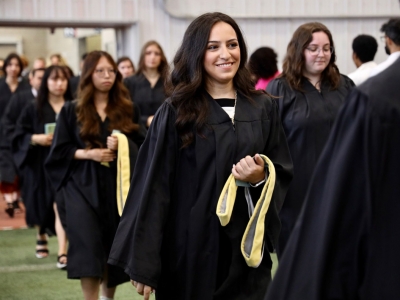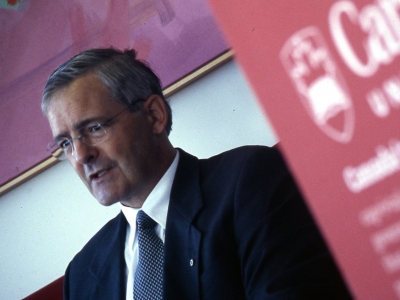Carleton University’s Melissa Chee, in partnership with Arshad Khan from the University of Texas at El Paso (UTEP), has published new research revealing that dopamine is produced by neurons in the zona incerta. This research recently appeared on the cover of the Journal of Comparative Neurology.
Three of Chee’s students also worked on the project. Rebecca Butler and Kayla Schumacker were undergraduates at the time, and worked with Mikayla Payant, now a PhD student. They used a technique to identify enzymes that a cell would need to make dopamine, as well as dopamine itself.
“It was a joy to be able to share this research with undergraduates. They are so much more capable than they are sometimes given credit for,” said Chee, professor in the Department of Neuroscience. “Science can be a wonderful world without borders, where people co-operate and collaborate to solve problems. Alongside Carleton’s support and Canada’s brain initiatives, we also had collaborators in Boston and the Netherlands who shared their expertise and unique resources with us.”
There are roughly 86 billion neurons in a human brain. It is the most complex human organ – and the least understood. Far from knowing what each neuron does, neuroscientists are still determining the functions each area of our brain performs.
When it was named, little was known about the brain area zona incerta – Latin for zone of uncertainty. It is now known to have diverse roles in feeding, sleep and fear. This new discovery may help determine how this mysterious area of the brain performs its roles.
Dopamine is a neurotransmitter associated with our brain’s reward system. It can be released by sex, drugs and social media likes. Too much dopamine – or too little – can contribute to mental health problems.
Once the team found these dopamine neurons, the Khan lab at UTEP—which specializes in brain mapping—was able to place the dopamine neurons on a brain atlas.
Just as a road map can give a driver directions, placing the dopamine neurons on an atlas map of the brain will help other scientists locate and work with them.
Media Contact
Steven Reid
Media Relations Officer
Carleton University
613-265-6613
Steven.Reid3@carleton.ca
Follow us on Twitter: www.twitter.com/Cunewsroom
COVID 19 Updates: https://newsroom.carleton.ca/coronavirus-covid-19/messages/
Tuesday, July 7, 2020 in News Releases
Share: Twitter, Facebook



